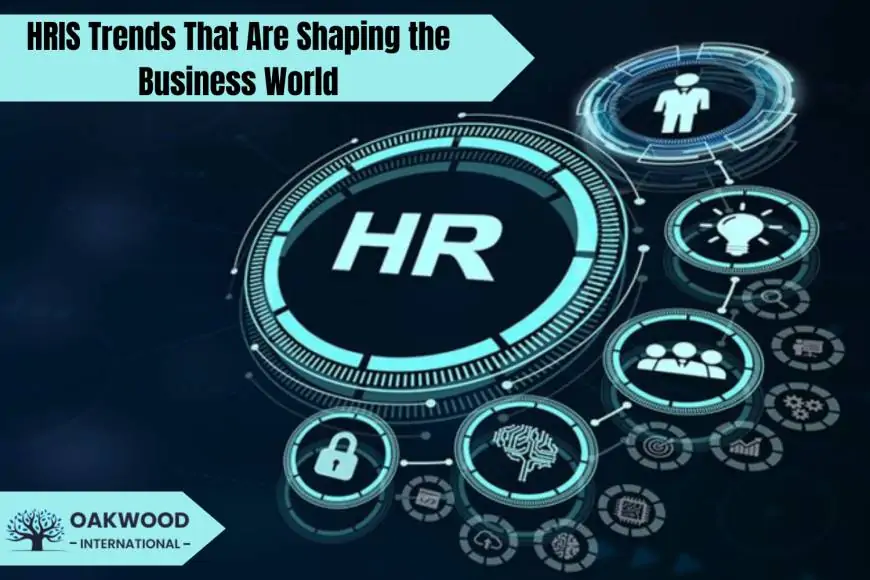Are traditional HR methods still enough to keep up with today’s fast-moving business world? The answer lies in how companies adapt through modern qualifications like the CIPD Level 7 Advanced Diploma in Strategic People Management and advanced tools such as the Human Resource Information System. No longer just about storing data, HRIS platforms are now at the heart of strategic decision-making. These systems redefine how businesses operate and compete, from automation to real-time insights.
In this blog, we uncover the key Human Resource Information System (HRIS) trends that are actively shaping the future of work.
Table of Contents
-
Key HRIS Trends Reshaping the Modern Workplace
-
Conclusion
Key HRIS Trends Reshaping the Modern Workplace
HR systems are evolving fast, helping businesses stay agile, data-driven and employee-focused. Below are the top HRIS trends every organisation should be watching right now:
AI Is No Longer an Add-On
Artificial Intelligence is now a core feature of many modern HRIS platforms. HR teams use it to assess resumes, forecast attrition and recommend learning pathways. Systems now evaluate information rather than merely store it. This increases hiring quality, saves time, and decreases manual labour. Companies that use AI-powered HRIS are making personnel choices more quickly and accurately.
The Rise of Mobile-First HR
Employees anticipate having access to their data from any location. HRIS designs that prioritise mobile devices are becoming more common. Everyone is constantly on the go, whether updating personal information or checking their leave balance. This accessibility lowers administrative enquiries and maintains team engagement. Mobile HR technologies are particularly crucial in field-based and hybrid roles.
People Analytics Are Getting Smarter
The days of HR reports being nothing more than spreadsheet data are long gone. Today's HRIS solutions provide real-time dashboards that help spot patterns such as growing absenteeism or a lack of skilled employees. These realisations assist leaders in acting before minor problems become major ones. HRIS intelligent analytics can even connect data to business results.
HRIS and Employee Experience Are Now Connected
When developing modern HRIS platforms, the employee journey is considered. A single system handles everything, from feedback gathering to onboarding. Automated upgrades, intuitive user interfaces, and customised dashboards provide a more seamless experience. Employees who have a better HRIS experience are frequently happier and more productive.
Cloud-Based HRIS Is the New Standard
Cloud storage is more than a trend. With remote work becoming more common, it is crucial for business continuity. Cloud-based HRIS solutions make real-time updates, safe access from various places, and simple platform integration possible. They provide better scalability and eliminate the need for costly IT infrastructure.
Security and Compliance Are Taking Centre StageS
Due to the increase in data breaches, businesses are paying more attention to how secure their HRIS is. Advanced security features like two-step authentication and frequent audits are now standard on the finest platforms. They also assist in maintaining compliance with data protection and employment laws, which lowers legal risks for companies.
Integrated Learning and Development Tools
Nowadays, learning is not an afterthought. The most recent HRIS platforms have tools for monitoring training, allocating courses, and calculating outcomes. Professionals seeking the CIPD Level 7 Advanced Diploma in Strategic People Management have similar objectives, which include ensuring that learning complements corporate strategy. When integrated L&D tools are integrated, creating a learning culture across departments is simpler.
Self-Service Portals Are Empowering Employees
Employees now demand authority over their own human resources operations. Employees can track performance goals, request time off, and update their profiles via self-service HRIS portals. This increases openness and lessens reliance on HR departments. When employees can manage routine chores independently, HR has more time to concentrate on strategic projects.
Sustainability Metrics Are Making an Entrance
Certain HRIS platforms are now tracking employee sustainability contributions due to the increasing significance of ESG (Environmental Social Governance). Two examples of HRIS supporting overarching corporate objectives are green commuting records and remote work data. This aids businesses in coordinating their HR strategy with social and environmental impact reporting.
Conclusion
HR is no longer about paperwork. The latest Human Resource Information System trends show how the role is shifting towards strategy, experience and data. As companies aim for agility, systems that support smarter decisions will lead the way. Professionals taking the CIPD Level 7 Advanced Diploma in Strategic People Management are already on this path. A certification offered by Oakwood International can help you gain the skills to lead the next wave of HR innovation.








